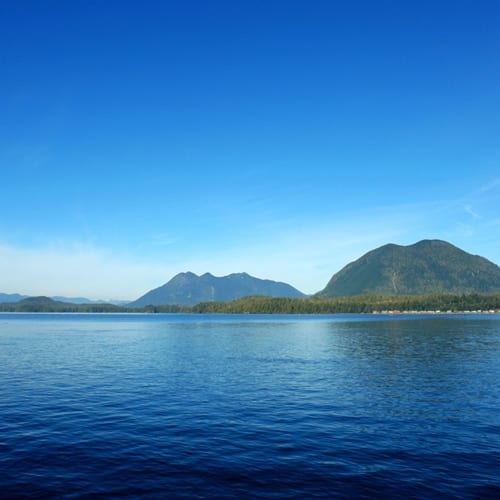You never know what you'll find in the commercial diving services industry, and this is certainly true for a professional who happened upon a rather explosive find on the west coast of Canada.
According to BBC News, a decommissioned nuclear bomb that's been missing for more than a half-century may have been located by happenstance, after a commercial diver spotted it while combing the ocean waters for sea cucumbers.
"The device dates back to 1950."
Sea cucumber search spawned discovery
In what many might describe as a miniaturized version of a flying saucer, the device was spotted on the outskirts of British Columbia and is believed to have originated from a U.S. B-36 bomber that crashed in the area back in 1950, five years after World War II, according to the Canadian Department of National Defense, the news source referenced.
The potentially historic unearthing was by accident, Sean Smyrichinsky, the commercial diver who spotted the device, told BBC News, coming upon it during a job that started on the coast of Pitt Island, not too far away from Alaska.
"[It was] bigger than a king-size bed," Smyrichinsky explained to the United Kingdom-based international news organization. He added that the top of the metal contraption was flat and in the center was a perfectly round hole, resembling the face of a bagel. Speaking to his friends, Smyrichinsky quipped how the strangeness of it made him wonder whether it was something that alien life forms might inhabit.
The Canadian Department of National Defense has since reached out to the United States, informing them of the discovery, BBC reported. Though additional investigative work must be done to determine its authenticity, military experts believe it may, indeed, be the lost nuclear device. It's not considered to be a safety threat, however, as the likelihood of it still containing explosive material is slim.
Military expert thinks it's something else
Not everyone is convinced, though, that it's the real deal. Aviation historian Dirk Septer indicated that the U.S. government mounted a search several years ago for the nuclear device and came up empty.
"It could be anything," Septer told the BBC. "Whatever [was] found, it's not the nuke."
According to Gordon Corera, BBC security correspondent, the lost nuclear device has been a cold case for decades. However, military experts are pretty sure that it landed in the ocean after a jet crash that claimed the lives of five people, with 12 surviving.
"95 percent of the world's nuclear warheads are owned by the U.S. and Russia."
The U.S. is one of only a handful of countries with nuclear capabilities. Nearly 95 percent of nuclear warheads are owned by the U.S. and Russia, according to the Federation of American Scientists, but France, China, the United Kingdom, Pakistan, India and Israel all have inventories.
Commercial diving contractors frequently have work that takes them to nuclear facilities, and as you might imagine, safety is a major priority. For instance, special equipment needs to be worn and properly maintained to avoid the risk of being injured in water that may be contaminated by radioactive material.

